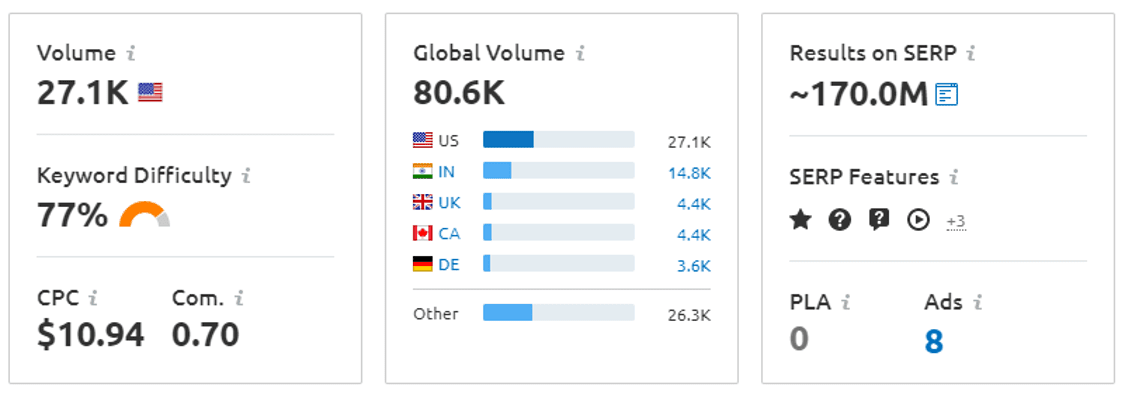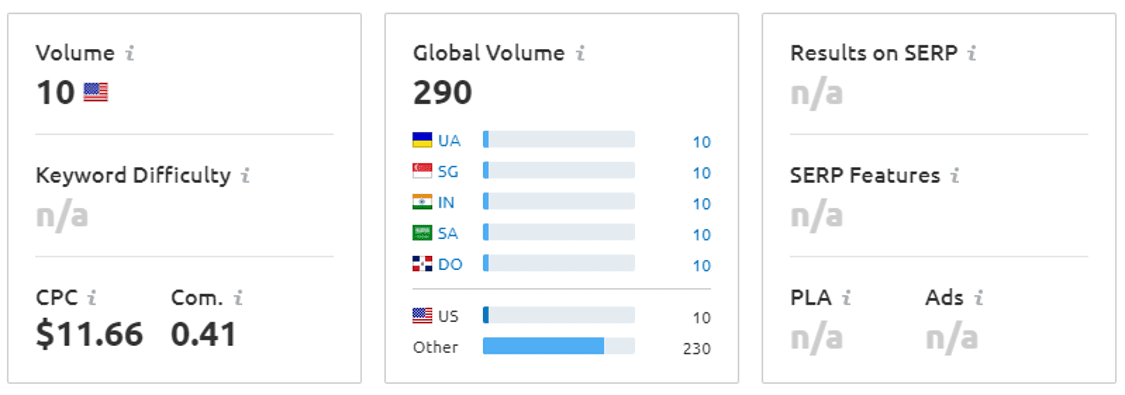Website migrations have dozens of moving parts. Start counting all the SEO keywords you need to keep track of during the migration, and suddenly you have hundreds of moving parts. But just carrying over your keyword list from your old site isn’t the way to go — you need to conduct fresh niche keyword research to guide and organize your site migration.
What happens when you don’t do that?
If you head into a site migration without guiding keyword research, you’re going to lose search engine visibility, miss out on the full value of your existing content, suffer blows to your domain authority, and halt the momentum of your organic digital strategy.
This international hotel group turned to an inexperienced agency for their site migration and faced all of those challenging blows — until we swooped in to save the day.
Don’t botch your site migration — get your niche keyword plan in place. Here’s how. (If you’re just joining us, you might want to catch up on Part 1: Benchmarking and Goal Setting.)
*Disclosure: We only feature services and products we honestly believe in and our perspectives are genuinely our own expert perspective. This post may contain affiliate links from which we earn a small commission, at no additional cost to you.
What are niche keywords?
The second step in a successful site migration involves niche keyword research. Niche keywords are specific long-tail keywords that are focused on your industry niche. When searchers know what they’re looking for, they’re more likely to use focused search terms that will narrow down the search results they get.
For example, if you own a SaaS company that creates CRM software for small medical practices that use Windows, a broad keyword would be “CRM software” while a more specific one would be “CRM software for Windows.” However, since the searcher looking for solutions for healthcare organizations is likely to add “healthcare” or “medical” to their search, some good niche keywords would be “Windows CRM software for healthcare SMBs” or “Windows CRM software for small medical practices.”
Keywords lead site architecture
When you’re preparing for a site migration, keep in mind that a successful site architecture is one that speaks to searcher intent — the objective the searcher wants to achieve by visiting a specific website — and then directs them into an online sales funnel that converts.
Because niche keywords are the single most commonly used tool to reflect searcher intent, it stands to reason that they should lead site architecture. Build a logical site architecture around your niche keywords so you can create content accordingly. In other words, you should construct your website around the broad keywords and niche keywords that you want to rank for.


Niche market keyword research
Before migrating your site, it’s critical to determine which niche keywords you’re currently ranking for on your old site and which landing pages they’re on, as Search Engine Watch advises. In the best case scenario, you’ll be ranking on the first SERP for niche keywords that are highly relevant to your business.
Best niche keyword research tool

If you’re not ranking, then it’s important to create a new set of keywords or key phrases that will garnish better results. Use a keyword research tool like SEMrush, which many SEO specialists find to be the best keyword research tool, to look for niche keywords that are likely to attract more high-quality traffic to your site. You can see how many searches are performed on a monthly basis for each keyword, and you can narrow your search results down from global to regional.
Keep in mind that traffic doesn’t necessarily equal viable leads, so it’s essential to select keywords that will drive traffic that consists of searchers who are in the market for the specific services or products you offer.
Here’s a helpful tip when conducting this niche keyword research: Keyword research is part product expertise and part common sense. You need to understand the product or service you’re offering to kick off your research. You then need to ask why Google would rank this page for that query, and the answer is on the SERPs. Is Google serving similar pages for your selected keywords? Then you’re in good shape.
Ahrefs is a solid alternative when you need to check your site’s ranking keywords and research new ones. Ahrefs, the long-time rival to SEMRush, was once my go-to and was only recently overtaken after some SEMRush updates. The platform provides many of the same style of metrics as well as related keywords and questions that users are searching.
How to do niche keyword research
On SEMrush, in addition to researching main or primary keywords and key phrases, you can also research related keywords. These are keywords that are similar to your primary keyword and are often used in a related search or in content about the topic. You can use them on appropriate pages to support your primary niche keywords.
Another strategy involves researching questions that are relevant to your primary keywords that searchers are typing into search engines. SEMrush will show you a list of these questions, along with data about how often they’re entered. You can include some of these questions in your content and, by providing high-quality answers, increase the chances that the search engines will rank you highly for them.
Another tip to save your sanity as you slash your way through hundreds of keywords: Don’t overcomplicate it. When there are four keywords with extremely close spellings and search volumes, pick the one that reads best to you and move on. You can always tweak the targeted keyword later.
In practice
At Digital Current, when we perform niche keyword research as part of our SEO services, we research the search terms that will bring organic traffic in and optimize the pages to match the intent of the searcher. In practice, we’ll uncover hundreds of keywords, provide an assessment of the top priorities, and then work with the client to finalize our target list.
We’ll mainly uncover new keyword opportunities, but when there’s an existing ranking, we’ll also determine if that’s the right page for the long-term strategy. If not, we’ll plan on flipping it into a more advantageous page.
Many of the contextual insights influencing this keyword research comes from our robust technical SEO audit, which itself is an essential step of any SEO strategy, including website migrations.
During a website migration, niche keyword research helps you map certain keywords to the right pages. That way, you can migrate into the correct URL structures and page hierarchies, while directing search traffic to the right place.
Up Next: Auditing and Optimizing for Site Migrations
Keep reading to learn how to effectively migrate your website. In Part 3, we’ll be talking about auditing and optimizing for site migrations.
Sign up for our email newsletter for more actionable SEO tips and guides.
Newsletter

Follow Brandon on LinkedIn and Twitter.
*Disclosure: We only feature services and products we honestly believe in and our perspectives are genuinely our own expert perspective. This post may contain affiliate links from which we earn a small commission, at no additional cost to you.


